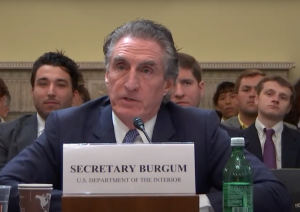Paper or plastic! Aaagghhh!!

I am in danger of freaking out on the grocery bagger next time I get the paper or plastic question. I have become overwhelmed by all the minutiae of sustainable choices I could/should make every day.
Can you help narrow the field to 3 or 4 changes each of us could make to make the greatest impact?
– Katherine
I could be criminally negligent if I didn’t first act to save your innocent bagger. The answer to his/her question is, of course, “No thanks; I brought my own canvas bag.”
And next I must thank you for your high-minded question. The first thing most people do when they discover you are a professional environmentalist is ask about curiosities that are, from an impact perspective, little more than just curiosities. (Should I buy ketchup in glass or plastic bottles?)

Support Local Journalism
There are a number of books and other resources that answer this question. Some take the approach that if they can get lots of people to make 10 simple changes, that all adds up to big change.
Others go for broke and tell you how to make your next home from mud and old newspapers. We have a fine book in our office that I recommend and will use to inform my answer.
“The Consumer’s Guide to Effective Environmental Choices” comes to us from some of our personal heroes, the Union of Concerned Scientists. They’ve done all the stuffy, science-y work while leaving us with merely a light, airy read.
The four general areas our geeky brethren offer to save baggers everywhere are:
1. Transportation
2. Food
3. Big, heavy parts of your home
4. Activism
We continually make decisions in these areas of our lives, whether sustainable or not. You must decide what impact your decision will have. Here are the, perhaps unsurprising, suggestions in a (shade-grown, fair-trade, organic) nutshell.
Transportation: Reduce your driving. Live close to work. Walk, bike, ride (mass transit) or carpool – in that preferred order, if you’re choosing. Buy the smallest, most efficient car that will suit your needs. Advocate for transit alternatives such as the commuter rail from Gypsum to Vail to Leadville that’s being kicked around the county.
Though Tom DeLay really tried, the internal combustion engine probably is the worst thing that ever happened to the environment. Do what you can to keep it off.
Food: It’s no coincidence that the most healthy diet decisions we can make are the best environmental decisions we can make. Do you know where your … cough! wheez! groan! … spinach came from? Keeping purchases local eliminates transportation impacts, soil degradation from mono-cultures, and bolsters our local economy.
Eat fewer farm animals and buy organic and you’ll also be cutting down the consumption and pollution of land and water. (Much hunting, by the way, is good in that it has become necessary to keep populations under control – we already ate all the good predators.)
Home: Changes involving the homestead are longer-term undertakings. Live so you don’t have to travel so much to work/play/hunt. Live in the smallest home you need, improve insulation, and reduce the amount of electricity, gas or water that your need. Replacing old appliances and toilets with new, super-efficient ones alone can save 10-25 percent on your utility bill.
Once you’ve found all the ways to reduce your energy consumption, consider new energy supplies such as wind, sun and your treadmill (seriously, why hasn’t someone figured out how to harness those things?).
Activism: Picketing your local polluter has its place, but you have more influence over friends, family and neighbors than dead-eyed suburbanites watching the news. Lead by example.
Express your thoughts in letters to the editor and to your government representatives. Endorse sound political initiatives (e.g. The Plan for Colorado’s New Energy Future – http://www.coloradoenergyfuture.org).
In the end, if we wait for our culture, our politicians, our neighbors to make the change we want, the most exciting choice we will face in our future will be … paper or plastic?
Terra Mater is the alter-ego of Matt Scherr, the resident know-it-all at the Eagle Valley Alliance for Sustainability (eaglevalleyalliance.org). If you have a question about local recycling, sustainability or other such issues, e-mail askterra@eaglevalleyalliance.org.
Vail, Colorado










